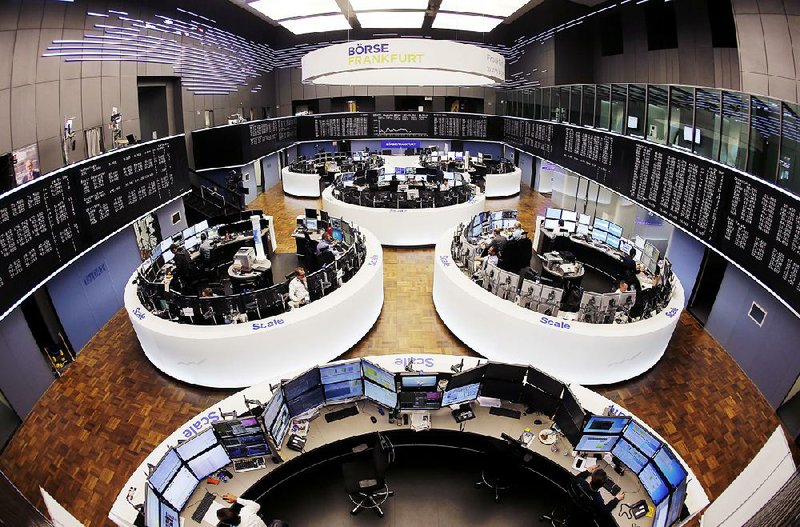LONDON -- The London Stock Exchange and Deutsche Boerse have tried to merge three times since 2000, hoping to create a European stock market heavyweight. And now, after a ruling from European regulators on Wednesday, all three efforts have failed.
The $30 billion merger, announced more than a year ago, would have created Europe's largest stock market operator by far, leaving the combined company better positioned to compete with American rivals.
But the deal faced a number of questions, particularly after German regulators and politicians balked at the combined exchange having its headquarters in London even as Britain moves forward with plans to leave the European Union.
On Wednesday, the European Commission blocked the deal, with Margrethe Vestager, the bloc's competition commissioner, citing concerns that a merger would create a "de facto monopoly" in the clearing of bonds and fixed-income products.
"As the parties failed to offer the remedies required to address our competition concerns, the commission has decided to prohibit the merger," she said.
The rejection came on the day that Britain began the two-year negotiating process to withdraw from the 28-nation bloc.
The shape of Britain's eventual trading relationship with the European Union after the so-called Brexit remains unclear. The decision on the stock exchange merger is evidence that European authorities will maintain jurisdiction over many big mergers, even when they involve companies with headquarters outside the European Union.
But as Britain leaves the bloc, making such deals may become even thornier. British companies like the London Stock Exchange will probably be perceived differently, seen instead as overseas buyers.
"We deal with any company who has a footprint in the European market because we want competition in the European market no matter your flag, no matter your ownership, and that goes for everyone," Vestager said during a news conference.
In seeking approval for the deal, the London Stock Exchange Group agreed in January to sell LCH, the French operating arm of the LCH Clearnet Group, after saying it was seeking to "address proactively antitrust concerns raised by the European Commission." The sale was contingent on the approval by European regulators of the Deutsche Boerse-London Stock Exchange transaction.
But the European Commission did not find that to be convincing, saying it would have created an effective monopoly in the clearing of bonds and other fixed-income products in Europe.
The chairman of Deutsche Boerse's supervisory board, Joachim Faber, said the decision was "a setback for Europe."
"A rare opportunity to create a global market infrastructure provider based in Europe and to strengthen the global competitiveness of Europe's financial markets has been missed," he said in a news release.
John Colley, the associate dean of Warwick Business School at the University of Warwick in Coventry, England, said a weakened London Stock Exchange may need to look to the west for potential partners.
Colley said that while the London Stock Exchange's business was performing well, "there is very likely to be some fallout" from Britain's exit from the EU.
The Intercontinental Exchange, based in Atlanta, was one potential bidder for the London exchange, he said, particularly given the weakness of the British pound against the dollar and the reduced cost of borrowing in an environment of historically low interest rates.
"The LSE is now vulnerable to a bid," he said.
Deutsche Boerse, however, does not have many potential targets for mergers in Europe and will probably try to attract stock listings and trading from Britain after the EU exit, Colley said.
Business on 03/30/2017
